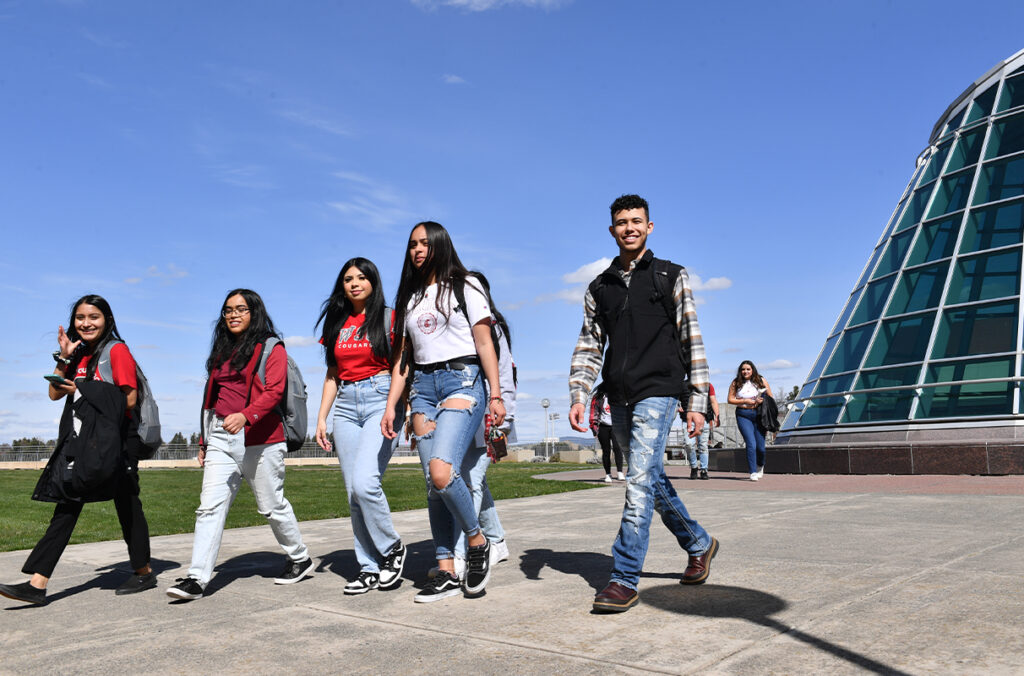Washington State University Pullman’s College Assistance Migrant Program (CAMP) will continue for five more years and the High School Equivalency Program (HEP) will return to campus thanks to grants funded by the U.S. Department of Education.
The two programs have secured a combined $4.75 million ($2.375 million each) to be distributed over five years.
Luci Loera, executive director for the Office for Access and Opportunity in the Division of Student Affairs, said both programs have been integral to WSU’s ability to serve migrant and seasonal farmworking families from across the state of Washington.
“I’m excited that CAMP will be able to continue its important work, and it means everything to have HEP back at WSU,” she said.
Both programs were funded following a competitive grant evaluation process. According to data provided by the U.S. Department of Elementary & Secondary Education, an average of 13 HEP and 15 CAMP programs have been awarded annually in the last six years.
Continuing a long legacy
WSU’s ties with HEP date back to 1967, when it became one of the first universities in the nation to be awarded the program. HEP helps seasonal and migrant farmworkers obtain a general education diploma (GED) that meets the guidelines for high school equivalency.
In 2008, WSU HEP was recognized by the U.S. Office of Migrant Education as the oldest continually operating federally funded program of its kind in the country; however, it hasn’t been funded since 2019. In applying for this grant, Loera highlighted plans to implement key services such as recruitment and outreach, bilingual GED instruction, digital literacy, career development, tutoring, and cultural enrichment opportunities.
“We are excited to build a team to provide these critical services to students,” Loera said. “The grant allows us to provide the 40 participants a residential experience by placing them in the same residence hall, which is so rewarding.”
HEP is transformational in the lives of the program’s participants, said Loera, because individuals with a GED have access to higher paying careers, more opportunities for promotion, and the ability to apply for higher education. Many of those who earned their GED through HEP at WSU in the past chose to apply for admission to WSU to continue their education.
Garnering statewide support
CAMP already has a solid team in place that provides an array of support services to first‑year students from seasonal and migrant farmworker backgrounds.
Heim said CAMP students bring a lot of energy and motivation to campus, but because most are first generation, they are unsure how to navigate the policies and procedures inherent at a university. For CAMP’s 50 participants, the academic advising, team building, financial planning, and social activities the program provides are key to helping them transition into college life.
“We put our hearts and souls into this grant,” said Michael Heim, who has served as the director of CAMP since 2018. “Knowing there is such a need for this program in our state, I was very emotionally invested in this one.”
Washington is second in the nation for its number of migrant and seasonal farmworkers, ranking behind California and just ahead of Texas. Heim said these numbers, along with the program’s proven track record of success — 98 percent of CAMP students continue to their sophomore year, and their graduation rate is 13 percent higher than the general student population — provided a compelling case for continued funding.
Heim gives credit for the program’s success to his team’s hard work and to the many partners across the state that have played key roles in advocating for and referring students to CAMP. In all, 27 offices, departments, agencies, and organizations submitted letters of support for the grant funding, including the Office of the Superintendent for Public Instruction and the United Farmworkers Association.
“So many people are supportive of what we do in CAMP and we are excited to continue working with our partners to ensure these students have a great first year at WSU and are well-positioned to graduate with college degrees,” he said.






